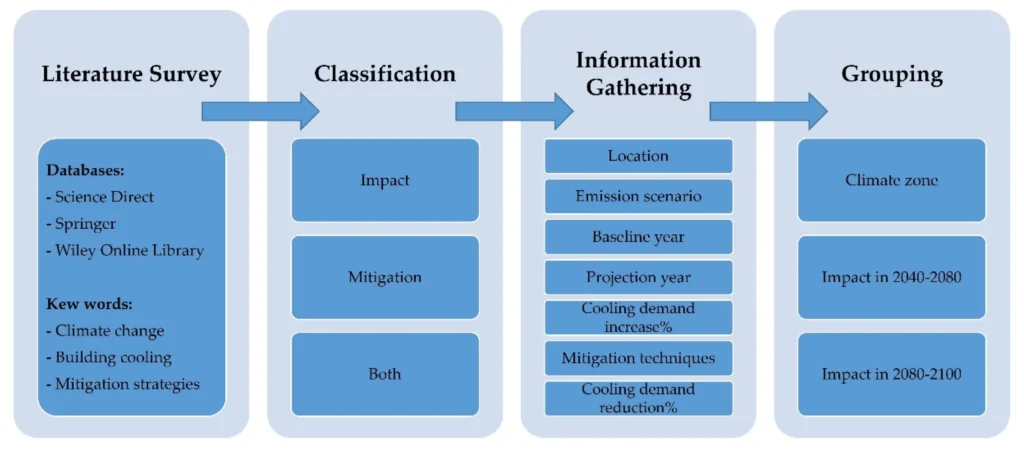Power consumption is an essential performance, efficiency, and thermal efficiency metric for CPUs. A 125-watt CPU feels ludicrous but is a normal spec for many high-end CPUs. Whether that’s too much of a price to pay depends on your use case, your cooling setup, and your energy efficiency priorities. Let’s take a closer look at what this 125-with CPU means to your CPU and how it impacts your system in general.
“125-watt CPU is not unreasonable if your cooler and power supply can handle it. That power number is standard for high-performance processors.”
So today we are going to talk about how 125 watts is too much for a CPU.
Table of Contents
How Many Watts Is the CPU Too High?

Power consumption is among the most significant considerations when assembling or upgrading a PC, and the CPU is arguably the single most power-hungry component. There are so many distinct processors on the market, it may be challenging for users to be able to answer the following question.
“Is 125 watts a lot of power for a CPU?” There is no one size fits all answer to that question because it hinges on a ton of variables like the nature of the system you’re building, your cooling capabilities, the workloads you’re running etc.
The lowdown on CPU wattage and TDP:
Before getting into the details of 125-watt CPUs, we first have to define what CPU wattage is. With a CPU, we typically speak of the wattage as its Thermal Design Power, or TDP.
TDP stands for Thermal Design Power that is a specification of the average power expected to be dissipated by a computer chip under workloads and also determines the surface area of a heat sink to keep the CPU functioning as if its temperature is optimal.The second measures how much power the CPU consumes at its rated speed under ideal conditions.
How Much Power Is 125 Watts?
In general, a 125-watt CPU is high-end. Some/most high-end gaming and workstation processors fall under this category. Some of these chips, like Intel’s top of the range Core i7 and i9 and AMD’s Ryzen 7 and Ryzen 9 models, can have a TDP of 125 watts or higher, depending on the specific model.
They target power user workloads: gaming, video editing, 3D rendering, software development, etc. So a 125 W CPU is going to generate a lot of heat when running heavy and therefore needs good cooling to maintain similar performance without hitting any thermal caps.
Also Read: CPU Drivers – A Complete Guide For Beginners!
Is 125 watts too much for your CPU?
System Configuration and Power Supply:
You really should consider the wattage rating of your CPU as just one component of the overall power requirements of your rig. Every piece of hardware in your PC needs power: your GPU, your storage drives, your RAM, your fans, and your peripherals. This means that you need to account for the total power draw of the entire platform, not just the CPU.
For example, you could have an extremely power-hungry graphics card (say, a bleeding-edge NVIDIA GeForce GTX 3090 that consumes up to 350 watts) and a 125-watt CPU. In this case, for example, we are dealing with a roughly 475-watt total CPU and GPU power draw, which means you’d want a PSU that can supply over 500w or so, closer to the 750-watt to 1000-watt range to provide a nice stability cushion.
If instead, you’re running a lower-powered CPU (around 65 watts, say) and a less powerful GPU, you could make do with a smaller PSU. A 125-watt CPU isn’t “too much,” then if your power supply will is sufficient for the system as a whole.
Cooling Requirements:

A 125-watt CPU produces quite a bit of heat, and without appropriate cooling, could lead to thermal throttling, or hardware damage to the processor itself. A high TDP CPU would, therefore, require good cooling.
These high-end CPUs are also demanding when it comes to cooling, with their TDP ratings generally around 125 watts on average. This can be high-end air coolers with bigger heatsinks and fans or liquid cooling solutions that dissipate heat much more efficiently compared to air coolers. The device needs to output a fair bit of heat, and you will need a proper cooling solution to ensure that it can maintain its maximum performance.
If you have a smaller form factor PC, or even a case with not the best airflow, you might have a serious thermal problem with a 125-watt CPU, and essentially nobody, with maybe a couple of exceptions, should have a 125-watt CPU. However, in a bigger tower case with decent airflow and plenty of cooling options, a 125-watt CPU can run more than fine.
Performance Needs:
Your performance requirements are another key consideration when choosing CPU wattage. CPU 125w is generally more used in advanced users dealing with heavy processing tasks.
These tasks include:
- Gaming: A 125-watt CPU is often the sweet spot, although you can still go higher, as modern AAA titles that lay waste to your machine can need the most up-to-date CPUs to share the load with intensive GPUs.
- Content creation: Anyone who does video editing, 3D rendering, and animation knows that they require serious CPU power and a 125w processor can deliver the horsepower necessary to get the job done.
- Software Development: Someone developing resource-heavy apps or compiling large codebases will appreciate the added performance a higher TDP processor like a 125-watt CPU brings.
- Multitasking: While a 125-watt CPU isn’t going to limit the number of heavy applications you can run, it can ensure there are no bottlenecks to smooth performance across multiple applications.
If your use case is browsing, word processing, and video watching, then the CPU would be fine at the lower end of the TDP spectrum, 35–95 watts, as your CPU can handle it, while consuming less power and producing less heat.
Overclocking Potential:
Overclocking is simply to run a CPU faster than its stock configuration to increase performance. “Overclocked CPU” is when users use their CPUs out of their normal operating parameters to achieve better performance, and generally this is done for gaming or video edition tasks.
However, overclocking can lead to additional power consumption and subsequently heat generation. If you were optically overclocking a 125W base TDP CPU, you can story how this number would be able to fly even higher.
One such thing is overclocking, which needs decent cooling solutions but can also sometimes take your system’s power consumption up to a point that the PSU cannot provide, which can end up in instability.
And that’s the primary reason high-TDP CPUs are typically overclocked by enthusiasts who lean towards custom cooling solutions such as liquid cooling kits to boot on a stable board. I’ll see you on the other side of this 125-watt CPU quandary.
Alos Read: Can You Damage Your Phone CPU By Playing Roblox – Prevent Overheating And Damage!
Needed and might even be overkill in some scenarios:
For Low-Power Use Usage: If you are building a budget or power-efficient machine that’s only going to be used for light-duty use web browsing, email, and office applications, a 125-watt CPU is probably way more than you need. Most don’t demand the full might of a high-TDP processor, and you could have more of an energy-efficient CPU in the 35 to 65-watt range.
- Poor Cooling: With no airflow in your case, a 125-watt CPU can be a killer if you don’t have enough room for a larger cooler. On small cases or terrible cooling, a CPU with a lower wattage is often a better idea.
- Overloaded Power Supply: If float power supply 125−140Wless power supply workers can also use loose hardware is not your best choice, a 125 W CPU will cause your PSU to exceed its limits, leading to instability and even closure. Make sure your PSU can handle the total power draw of both your CPU and GPU as well as everything else.
GPU Power: Which Wattage To Pick?
Processors come in such a wide range of wattage figures that making sure you pick a CPU that suits your needs is essential.
- BIOS vs UEFI: This is a choice that is becoming less and less common Most motherboards coming out these days use UEFI. You can choose a half-kilowatt of power (65-95W) for lighter workloads like web browsing or office tasks.
- Cooler and Size: Otherwise check if your cooler is capable of the 125W thermal envelope. If your motherboard is in a smaller form factor PC case, you may even contemplate purchasing dedicated cooling solutions to bypass thermal complications.
- Check PSU wattage: Make sure your PSU can supply enough wattage to properly power the combined power draw of the CPU, GPU, RAM, storage, etc. If you’re building a high-end system, get a PSU rated for 750 watts or more.
FAQ’s
1. Is 125w CPU good for gaming?
And a 125-watt CPU is better for high-end gaming; you may ask why.
2. Is it possible for my PC to run a 125-watt CPU too hot?
It all depends on your cooling solution. A 125-watt CPU is a heat generator, so adequate cooling is also a concern, with a good air cooler or liquid cooler being a must.
3. How much power supply will I need for a 125w CPU?
If you have a 125-watt CPU, a PSU from the 750 to 1000-watt range should be sufficient for your entire system (including your GPU and all other hardware).
4. Is a 125-watt CPU overkill for things like browsing?
For light tasks, such as web browsing or word processing, of course, a 125-watt CPU is overkill. A CPU with a lower TDP would also be less power-hungry.
5. Is overclocking a 125-watt CPU more power-hungry?
Yes, overclocking will indeed cause higher power consumption and heat generation. If you’ll be overclocking, you’ll also need better cooling and a higher-capacity PSU.
Conclusion
To wrap it up, a 125-watt CPU is not a lot, even in demanding tasks such as gaming or content creation, where a lot of power is required. But, it can be overkill on things not-so-demanding and needs quite a bit of cooling and a PSU that is good enough concerning wattage. Only choose a 125-watt processor if your setup can accommodate its power and heat requirements.

